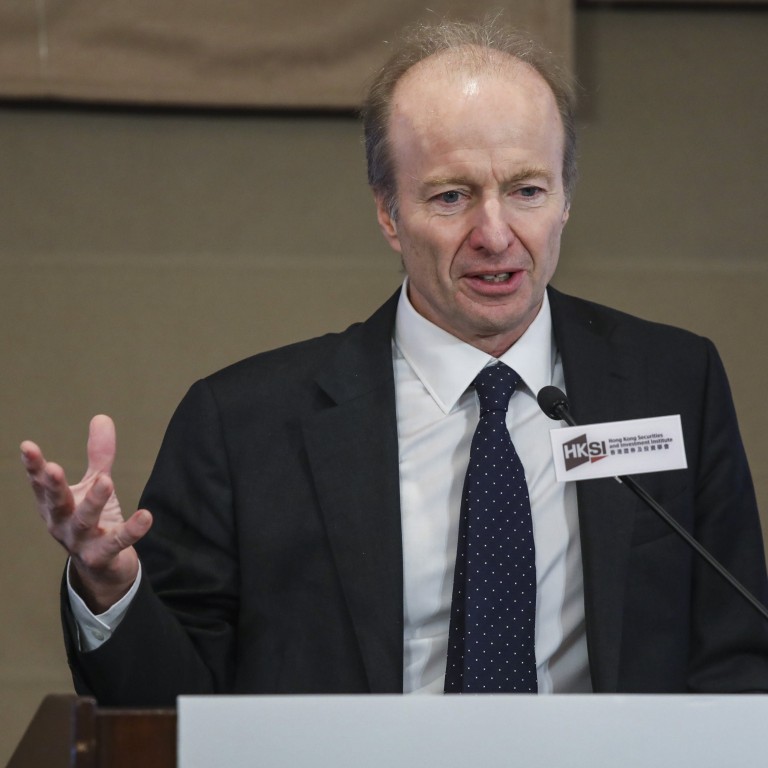
Hong Kong with its China-centric securities market has a big role to play in shaping global sustainability reporting standards, regulator tells China Conference
- ‘We sit at the right place at the right time to intermediate the financial markets in Hong Kong, China and the rest of the world’ – Ashley Alder
- Common reporting standards important because firms are adopting a wide array of methodologies to report ESG performance, Fidelity executive says
Hong Kong has an immensely important role in global green finance, but its success hinges on shaping and rapidly adopting international sustainability reporting standards.
“The good news is that this is now getting to a credible, convincing technical level of content development, which should be sufficiently interoperable internationally,” he said, referring to the IOSCO’s collaboration with the International Financial Reporting Standards Foundation on a first set of global sustainability reporting standards.

“It is really important that Hong Kong has an influential voice on this, not least because we need to ensure that we are at the top table – that gives us the ability to introduce that standard in Hong Kong pretty quickly, provided we think it is the right standard,” he said.
The city’s China-dominant securities market has a significant impact on greenhouse gas reduction globally. Hong Kong is one of the largest equity capital markets in the world, and most companies listed here have a significant portion – if not all – of their operations in mainland China. Funds raised here for cutting their carbon footprint will have a global impact because China accounted for 27 per cent of the world’s carbon emissions in 2019, more than the combined 24 per cent contributed by the next three biggest emitters, the United States, India and the European Union, according to New York-based research provider Rhodium Group.
“[Hong Kong is] at the crossroads [of] the need for global convergence of green finance standards, because the ability to compare reliably is everything for investors,” Alder said. “We sit at the right place at the right time to intermediate the financial markets in Hong Kong, China and the rest of the world.”
“For example, the methodologies in Scope 3 carbon emission reporting vary wildly across companies,” he said. “They carry lots of different assumptions, and there is lots of double counting within a portfolio of assets.” Scope 3 emissions arise from activities of assets not owned or controlled by the reporting organisation.
The lack of globally accepted and regulated reporting standards has also resulted in an expectation gap between sustainable debt issuers and investors, said Zhang Yang, director of debt origination and advisory in Asia-Pacific at Credit Agricole CIB.

